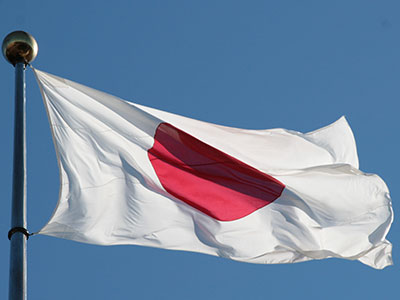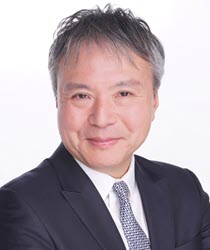Japan’s Healthcare Strategy
In Support of a New Mandate for Japan’s Chief Medical Officer
Ryo Kubota (Acucela, Keio University) discusses why greater strategic leadership will be required for Japan to address its healthcare challenges and explains how a new mandate for the country’s chief medical officer could address that need.
Globalization, urbanization, and regular air travel mean not only that disease respects no borders, but also that it can reach the scale of a pandemic in a matter of days. Recent epidemics of SARS, Ebola, Zika, and influenza underscore national vulnerability around the world. No country is immune, regardless of economic or military power. As a result, finding and implementing solutions to public health threats requires comprehensive, interdisciplinary, and globalized responses. At the same time, several emerging shifts in societal structures are challenging existing response strategies. Such shifts include rapidly aging populations, increasing resistance to drugs, a shortage of trained health workers, the spread of dangerous misinformation through social media, and ever more constrained health budgets. These factors strain the ability of governments to anticipate, gather evidence of, and respond to public health threats and may ultimately require that decision-makers rethink best practices.
Japan is well-positioned to serve as a global leader in responding to this challenge. It has set the gold standard in national universal health coverage and continues to be a pioneer in the development of new drugs. Additionally, Japan has a strong legacy of successful public health campaigns. In less than half a century, it has transformed itself from a developing country rife with infectious and parasitic diseases into the nation with the highest life expectancy. Those same public health programs now form the foundation of many of the World Health Organization’s current strategies for eliminating disease, illustrating the innovative and organizational foresight of Japanese leaders.
However, despite this strong tradition of public health, Japan is now struggling with how best to tackle several complex and sensitive issues. Japanese healthcare policy today is still organized around twentieth-century thinking about the nature of public health challenges, and in one key respect, Japan has not even caught up to twentieth-century best practice: it lacks an empowered chief medical officer (CMO). This commentary will explore the critical role that a CMO plays in public health policy and will illustrate the need for the Japanese government to empower this position by considering the recent debates over smoking and vaccination.
The Role of Chief Medical Officers
In practical terms, a CMO is a physician who advises the prime minister and his cabinet on critical matters of public health and serves as a credible voice for conveying information on science and medicine to the public. The post originated in Victorian times and was created by the British government to help prevent cholera epidemics. Although Britain possessed one of that era’s most advanced healthcare systems, policymakers found that the initial response by the public health ministry was ineffective in mobilizing government, private industry, and the public to deal with this and other epidemics in a sustained and comprehensive way. An effective response would require not only breakthroughs in medicine but also changes in sanitation standards, new physical infrastructure, and a better way to communicate vital information to the public. The CMO was envisioned as someone who would be empowered to design and execute a coordinated response to a public health challenge.
Today, a number of countries deploy the concept of a CMO in some form. The equivalent position falls under different titles (for example, surgeon general in the United States and chief public health officer in Canada) and may also vary in mandate and level of statutory influence. However, several critical functions remain consistent and are crucial to understanding what makes a CMO uniquely effective as a national champion for public health. The first is that this post serves as the senior medical adviser to the government as a whole—not just to a health ministry. The fact that the position in most countries has influence across ministries and agencies allows the CMO to raise awareness of and propose responses that directly address the inextricable links between public health, human security, international trade, education, foreign affairs, and basic research that characterize current public health challenges and solutions.
The second is that the CMO must be a trained medical professional. This is critical to ensure that this person’s decision-making is informed by scientific evidence and subject-matter expertise, not politics. Third and finally, the CMO is expected to have some degree of insulation from political pressure. Combined, these conditions can better position the CMO to act as a health spokesperson. This function is particularly crucial in instances where the public may have varying degrees of literacy in relevant medical and scientific concepts and a highly trusted official is needed to address skepticism about the merits or urgency of a particular policy.
Although Japan has someone with the title of chief medical officer, the problem is that this individual is not empowered to act as a true CMO. Part of this is due to the relative newness of the post: the Japanese government only created the position of chief medical and global health officer in the second half of 2017. However, even granting for a necessary breaking-in period, anyone in this role will likely face ongoing challenges given how the position is currently structured. Residing in the Ministry of Health, Labour and Welfare (MHLW), this officer reports directly to the MHLW minister (a political appointee) and possesses the authority equivalent to that of a deputy minister. Moreover, the position is mandated to help coordinate, but not to lead or drive, public health efforts. This officer also does not have the authority to work across agencies and is unable to elevate cross-functional yet critical public health issues to the cabinet level independent of the MHLW’s agenda. Thus, the chief medical and global health officer is certainly not an independent spokesperson for public health issues, rendering the position largely symbolic. While the creation of this position and its fulfillment by a trained medical doctor represents a positive step for Japan, the government must greatly enhance the position’s authority, mandate, and visibility to make the impact it could and should.
CMOs in Practice
The argument for creating a truly empowered CMO in Japan is more than just an academic exercise. In several cases, the country is already suffering from its absence. The recent debates over smoking and vaccination are especially helpful in illustrating this point.
Smoking. With the 2020 Olympics fast approaching, restaurant owners, health experts, and politicians are embroiled in a debate over Japan’s smoking laws. Tokyo’s governor is highly motivated to introduce an official ban on indoor smoking in public spaces to comply with an agreement between the World Health Organization and the International Olympic Committee on holding “tobacco-free” games. Yet while businesses, restaurants, and public facilities throughout the country have increasingly and voluntarily banned cigarettes, so far Japan has passed no national regulation. [1] Meanwhile, proponents of a national ban have criticized a proposal currently under review for having enormous loopholes. A number of factors are at play in the overall decision-making process. The introduction of an indoor-smoking ban carries significant financial and political implications for stakeholders across the government and industry, especially considering that the Ministry of Finance is a 33% shareholder in Japan Tobacco. [2] Public health unfortunately appears to be a secondary concern in policy arguments for and against a ban.
This is exactly the sort of situation where the CMO should step in to provide nonpolitical, evidenced-based guidance on a public health issue—in this case, information on the disastrous effects of smoking on public health and data on the impact of changing smoking policies. In the case of the United States, the surgeon general’s landmark 1964 report on smoking offered clear evidence on the link between tobacco and negative public health consequences. The report played a critical role in transforming the public debate on smoking and ultimately led to the establishment of the requirement that warning labels be attached to packages of cigarettes. [3] The surgeon general’s credibility as a nonpartisan medical professional, coupled with his use of scientific evidence, helped raise popular attention to the importance of the issue. Likewise, the United Kingdom’s former CMO Liam Donaldson considers his role in bringing about the country’s 2007 national ban on smoking in public places to be his greatest achievement. [4] Importantly, he played this role despite initially strong government opposition, including from the health secretary, who supported a partial ban. [5] Donaldson’s persistence and commitment were integral to the success of the total ban, but his statutory influence outside the department of health was also critical.
In the case of Japan, although the MHLW supports a stricter ban on smoking, the ministry has thus far been relatively passive on this issue. This is despite evidence that a ban would have enormous long-term health benefits for the Japanese population. Ultimately, the decision needs to be made at the cabinet level and requires a strong, independent CMO to champion the ban and educate the public on the health benefits.
Vaccination. Vaccine-related controversies have occurred with some regularity in Japan over the past several decades, [6] and the lack of an empowered CMO may be one of the reasons. Without qualified health experts in senior government positions, it is easy for damaging misinformation based on emotional responses or pseudoscientific data to spread unchecked, with significant consequences for public health. [7]
One such case in point is the dangerous drop in human papillomavirus (HPV) vaccinations in Japan. The HPV vaccine is designed to prevent the spread of several strains of the virus that can result in cancer. Within three years of becoming available in Japan, the vaccine became part of the free national immunization program and achieved 70% coverage. [8] However, in 2013 a campaign against the vaccine claimed that it could cause debilitating side effects, a message that was further amplified by television broadcasts of young women having seizures supposedly after receiving the shot. In fact, a Japanese academic who took on the role of countering these claims uncovered that much of the misinformation stemmed from a study that was conducted by a highly respected Japanese doctor, but whose underlying data and analysis were fraudulent. Although the journal that published the study ultimately issued a retraction, the damage was done: Japanese coverage rates for the HPV vaccine dropped to nearly zero in December 2017. [9] Despite the extensive safety data available for this vaccine and the fact that no claim of adverse consequences has been substantiated, misinformation reigns as parents avoid the vaccine for their children.
In this case, the CMO’s duty should be to elevate the issue to the cabinet level immediately and work across the MHLW and Ministry of Education on an emergency public awareness campaign, in addition to serving as a trusted spokesperson to counter misinformation with evidence-based arguments. Instead, the MHLW fueled the sensational media coverage of the issue by suspending active promotion of the HPV vaccine, despite finding no evidence to support the claims that anti-vaccine groups were making. [10] Though the ministry did not suspend use of the vaccine, this action created the perception that the news reports had merit. The Japan Society of Obstetrics and Gynecology issued a statement asking the government to resume actively promoting the HPV vaccine, but as of May 2018 the MHLW has not done so. [11]
Though this controversy surrounding the HPV vaccine erupted long before the current chief medical and global health officer was appointed, the misinformation surrounding the vaccine persists, and the CMO has not yet stepped in to publicly counter false reports. It is of course possible that this issue is being treated as outside the scope of the current officer’s duties, or that there is more going on behind the scenes than meets the eye. Yet if Japan’s chief medical and global health officer cannot weigh in in a major way to provide guidance on an important public health issue, what is the purpose of the position?
The Way Forward
Japan needs a cabinet-level official who is well-positioned to inform and support national efforts to create new best practices for addressing key health concerns. This includes crafting innovative, adaptive tools for addressing emerging challenges such as smoking and anti-vaccination campaigns. If empowered to do so, the CMO’s platform could help increase the visibility of Japan’s medical science research agenda as well as advance public health.
By elevating the authority of the position and broadening its mandate, for example, the government could leverage its recent creation of the Japan Agency for Medical Research and Development (AMED). Often likened to the United States’ National Institutes of Health, the agency was established in 2015 to drive basic R&D and accelerate its translation into commercial products. The CMO would ideally work in concert with AMED to identify key health challenges for which further research is needed.
More generally, the science and innovation agenda has worked its way to the top of the government’s agenda in recent years and is now a critical component of the Shinzo Abe administration’s strategies to promote economic revitalization and human security. This makes a truly effective, visible CMO all the more important in Japan. A government official is rarely immune to politics, and a CMO will of course need to balance political pressures with the job’s demand for an impartial medical expert. To make Japan’s public health policy as successful in the 21st century as it was in the previous one, the position must have statutory independence, or something akin to it.
The role of spokesperson may prove challenging in Japan—a country where reserve is admired, outspoken criticism is considered unseemly, and even vice ministers prefer to perform their duties quietly, without standing out. The fact that very few government officials—even in the MHLW—have any clinical or laboratory training creates a further communication gap for a CMO to bridge. But both the country and its government would benefit greatly from the frank views of a trained medical professional. Empowering this person to help Japan navigate the interconnections between health, science, research, and policy could help address the most critical public health threats of today and tomorrow.
Endnotes
[1] “Smoking Ban Plan Diluted Again,” Japan Times, February 10, 2018,
https://www.japantimes.co.jp/opinion/2018/02/10/editorials/smoking-ban-plan-diluted/#.WvoBYYgvxPY.
[2] “The Poverty of Politics and Tobacco Policy,” Japan Times, April 23, 2017, https://www.japantimes.co.jp/opinion/2017/04/23/commentary/japan-commentary/poverty-politics-tobacco-policy/#.WvoaWogvxPY.
[3] Elliott Antman et al., “The 50th Anniversary of the U.S. Surgeon General’s Report on Tobacco: What We’ve Accomplished and Where We Go from Here,” Journal of the American Heart Association 3, no. 1 (2014), https://www.ncbi.nlm.nih.gov/pmc/articles/PMC3959714; and “Making Decisions Regarding Tobacco Use,” RJ Reynolds, http://www.rjrt.com/tobacco-use-health/public-health-information.
[4] Liam Donaldson, “Proud of Smoke-Free Public Places,” BMJ, October 28, 2015, http://researchonline.lshtm.ac.uk/3387139/1/Liam%20Donaldson%20Proud%20of%20smoke-free%20public%20places_GREEN%20VoR.pdf.
[5] Celia Hall, “Ban Smoking in Hospitals Now, Says Health Chief,” Telegraph, July 29, 2004, https://www.telegraph.co.uk/news/uknews/1468113/Ban-smoking-in-hospitals-now-says-health-chief.html.
[6] Yusuke Tanaka et al., “History Repeats Itself in Japan: Failure to Learn from Rubella Epidemic Leads to Failure to Provide the HPV Vaccine,” Human Vaccines and Immunotherapeutics 13, no. 8 (2013): 1859–60, https://www.tandfonline.com/doi/full/10.1080/21645515.2017.1327929.
[7] J.B. Hanley et al., “HPV Vaccination Crisis in Japan,” Lancet, June 27, 2015, http://www.thelancet.com/journals/lancet/article/PIIS0140-6736%2815%2961152-7/fulltext.
[8] Julia Belluz, “Why Japan’s HPV Vaccine Rates Dropped from 70% to Near Zero,” Vox, December 1, 2017, https://www.vox.com/science-and-health/2017/12/1/16723912/japan-hpv-vaccine.
[9] Dennis Normile, “Journal Retracts Paper Claiming Neurological Damage from HPV Vaccine,” Science, May 11, 2018, http://www.sciencemag.org/news/2018/05/journal-retracts-paper-claiming-neurological-damage-hpv-vaccine; and Tsuyoshi Okuhara et al., “Contents of Japanese Pro- and Anti-HPV Vaccination Websites: A Text Mining Analysis,” Patient Education and Counseling 101, no. 3 (2017), https://www.ncbi.nlm.nih.gov/pubmed/29031425.
[10] Anna Fifield, “The Science Doesn’t Support Them, but Japanese Anti-vaxxers Are Winning on HPV,” Washington Post, November 10, 2015, https://www.washingtonpost.com/news/worldviews/wp/2015/11/10/the-science-doesnt-support-it-but-japanese-anti-vaxxers-are-winning-on-hpv/?utm_term=.a620387106c8.
[11] “Japan: Bring Back HPV Vaccination, Say Japanese Experts,” Vaccine Confidence Project, July 11, 2016, http://www.vaccineconfidence.org/japanbring-back-hpv-vaccination-say-japanese-experts.
Ryo Kubota is Chairman, President, and CEO of Acucela Inc., a subsidiary of Kubota Pharmaceutical Holdings. He is also a member of the Board of Directors at the National Bureau of Asian Research and a visiting professor at Keio University School of Medicine. Dr. Kubota holds an MD and a PhD in Medicine from Keio University.




